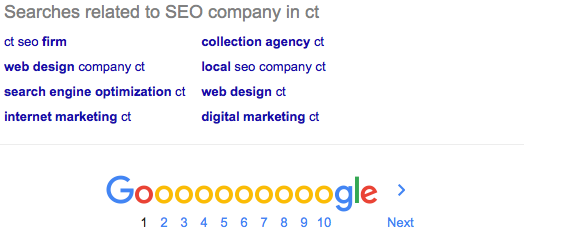 There’s no doubt about it: keyword research is a crucial component of any SEO campaign. Foregoing keyword research leaves your marketing team blind in their efforts to drive meaningful traffic to your organization’s website. Unfortunately, keyword research isn’t as easy as it may seem upon first glance— you can’t just pick keywords that are relevant to your business (though that’s a good place to start).
There’s no doubt about it: keyword research is a crucial component of any SEO campaign. Foregoing keyword research leaves your marketing team blind in their efforts to drive meaningful traffic to your organization’s website. Unfortunately, keyword research isn’t as easy as it may seem upon first glance— you can’t just pick keywords that are relevant to your business (though that’s a good place to start).
This article is focused on teaching you the basics for finding out which keywords your customers are using as they turn to Google for answers to their questions.
Competitive Analysis
In all likelihood, your competitors are already using long-tail keywords that are relevant to your business, which inevitably makes your task a bit easier. In order to take advantage of this, take some time to find out which keywords your competitor has tagged. You can find these in the title tags, as well as in the meta tags in the source code. Of course, if you take the time to read through your competitor’s content, you may find keywords that are relevant. Be sure to scan closely at the titles and the snippets— the long-tail keywords you seek are most likely going to turn up there.
Seeking Suggested & Related Keywords
Who knew that Google could be a reliable source for finding keyword suggestions? Begin by typing in a prospective search term, and scroll to the bottom of the page to find some suggested keywords that may be useful for your efforts (see image below).
Google Suggest is the auto-suggest feature that automatically appears when you start typing keywords into the search field. This tool can be quite useful for finding related terms, and, most of the keywords that appear there are what real people have actually searched for. Once you type in the beginning of a search query, Google provides a set of related keywords, including a few that are long-tail and potentially worth pursuing. Of course, you will want to conduct further research before you add these keywords to your list.
HubSpot’s Keyword Grader
HubSpot, all-in-one marketing software, offers users the ability to access real-time information and statistics on keywords that are most relevant to their organization and specific industry. Users have the option to compare keywords, search volume, rank, and keyword difficulty— all in one easy to navigate screen— in a way that integrates with the rest of your site’s content.
Consider The Stages of Buying Cycle
Buyers typically go through certain steps as they research a product or service. Through educated guess, you can deduce the stage of buying cycle people are at by looking at their search queries. In the initial stage, people search for broad terms, aiming to self-educate on a general topic. Once their interest is piqued, their search queries become a bit more specific. Obviously, keywords in the last stages are more desirable because buyers in those stages are closer to converting.
Ask Your Customers!
This is pretty straightforward, yet it’s shocking to see businesses’ neglect this simple step. After all, the most reliable source of information usually comes from your customers After you’ve closed a sale, feel free to ask how the customer found your websites (i.e. what search terms did they use to bring them to your site). Create a list of the confirmed terms that customers have used to reach your business in the past, and make sure that you dress these keywords in your content strategy, so you don’t loose footing in the SERPs.
Final Thoughts
Now you have a list of keywords that will help you begin to focus on the right topics for your business, and get you some short term and long term gains. You should re-evaluate these keywords every few months, and as you gain more authority in the search engine results pages, you will likely discover that you can add more keywords to your list to tackle as your work on maintaining your current presence.
ImageWorks, LLC
Never depend on search engine optimization alone for the growth of your business. Often the businesses that fail are the ones that depend on SEO alone for the entire growth of their business. The companies that survive and thrive are the ones that have a solid approach and market in a variety of ways both online and offline. SEO can be a big piece; however, it is only one slice of the marketing pie.
By integrating all of today's Web tools such as SEO, social media, pay per click, and blogs, ImageWorks can provide a level of permission based inbound marketing that will turn your site into a lead generation tool. With continued nurturing programs, you become a trusted source, and prospects convert to customers.


